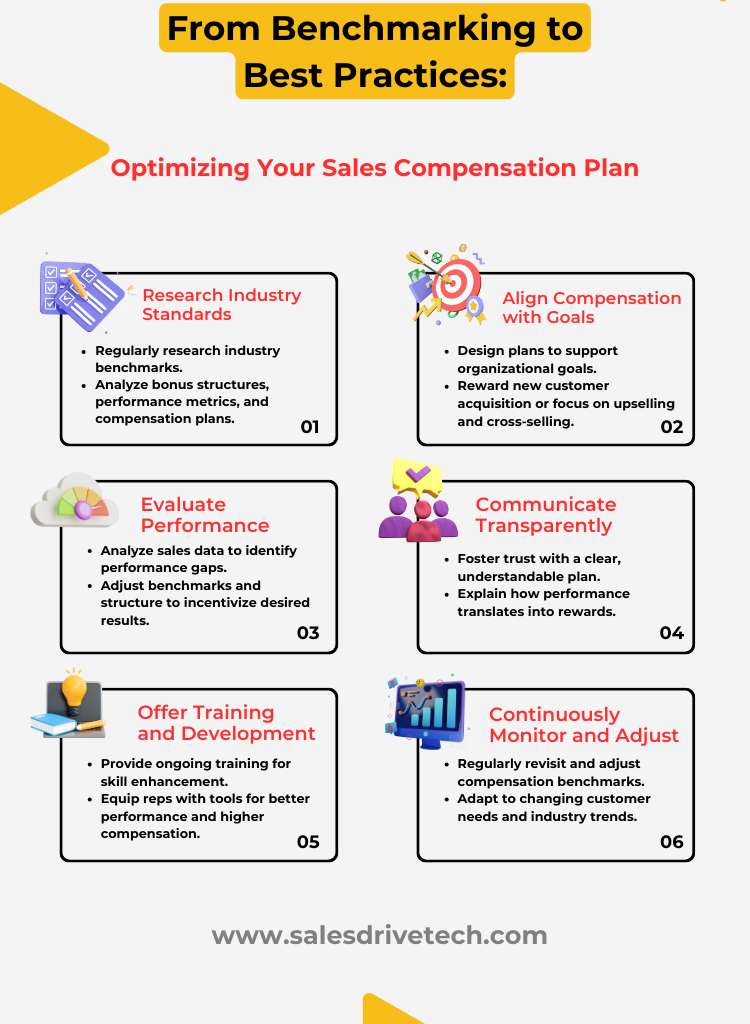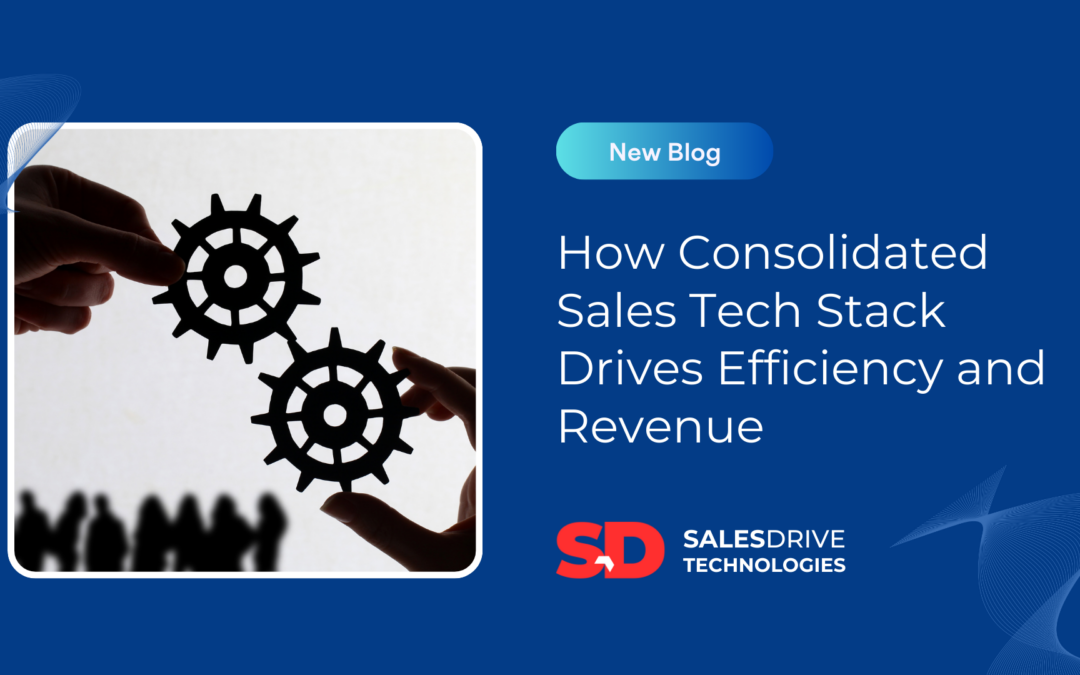How motivated would your sales team be to keep pushing forward?
Proper sales compensation isn’t just about attracting top talent; it’s about creating a work environment where your team feels valued and empowered to succeed. But with poorly designed benchmarks, the opposite can happen. Sales reps can become discouraged, demotivated, and even burnt out.
That said, Sales compensation benchmarks can help and are one of the influential factors of the sales compensation plan that’s fair, competitive, and directly tied to achieving your organization’s goals. They ensure your sales team feels rewarded for their hard work and equipped to bring home a paycheck they can be proud of.
In this article, we’ll explore fifteen key sales compensation benchmarks and how they can help you build a thriving sales team, fueled by motivation and a clear path to success.
What are Sales Compensation Benchmarks?
To build a high-performing sales team, you must also be sure about how to compensate them competitively. Sales compensation benchmarks can help as a roadmap to crafting a competitive compensation plan tailored to your specific industry.
These benchmarks provide valuable insights into the typical salary structures, commission rates, and bonus programs used by similar organizations within your field.
Benefits of Using Sales Compensation Benchmarks
Crafting a sales compensation plan can feel like navigating a financial maze. You want to attract top talent, incentivize peak performance, and ultimately drive sales growth.
But how do you ensure your comp plan is on target?
By using these industry standards, you gain access to a significant range of benefits:
Attract Top Performers
Competitive compensation plans are like a magnet for top sales talent. By offering salaries, commissions, and bonuses that are in line with industry standards, you attract reps with a proven track record of success.
This sets the stage for a high-performing team from the get-go.
Drive Peak Performance
Aligning your compensation plan with your organization’s goals creates a clear path to success for your sales reps.
When commissions and bonuses are directly tied to achieving specific sales targets, it incentivizes the behaviors that drive revenue growth.
Identify Areas for Improvement
By comparing your current structure to industry standards, you can identify areas that might be lagging.
Maybe your base salary is below average, or your commission rates don’t offer enough incentive. This valuable insight allows you to make targeted adjustments and optimize your plan for maximum impact.
Learn from the Best
Sales compensation benchmarks offer a window into the strategies of successful sales organizations. By analyzing how industry leaders structure their plans, you can glean valuable best practices.
This knowledge empowers you to incorporate elements that have demonstrably led to high sales performance.
Boost Sales Efficiency
A well-designed compensation plan can nudge your sales team to prioritize the products and services that generate the highest margins.
By structuring commissions and bonuses to reward sales of these high-value offerings, you encourage reps to focus their efforts where it truly counts, maximizing your sales efficiency.
Foster Collaboration
Transparency and fairness are key to building a strong sales team. When your compensation plan is clear and equitable, it fosters a sense of trust and collaboration among reps.
Everyone understands the path to earning top compensation, which can motivate healthy competition and teamwork towards achieving shared goals.
Key Sales Compensation Benchmarks
Now that we’ve explored the advantages of using sales compensation benchmarks, let’s delve into the nitty-gritty.
Here are key benchmarks to consider when crafting your plan:
Base Salary
This is the guaranteed income your sales reps receive every pay period. Benchmarks provide insights into average base salaries within your specific industry and company size.
Commission Rates
These are performance-based bonuses earned for closing deals. Benchmarks can help you determine commission rates that are motivating for your reps and aligned with industry standards. Commission rates typically range from 5% to 30% of the total sales volume.
Bonus Programs
Many companies offer additional bonuses on top of base salary and commission for exceeding sales targets (average payout is 10% to 15% of base salary).
Benchmarks can inspire you to design effective bonus structures that incentivize peak performance.
Performance Metrics
These are the quantifiable measures of your sales team’s success, such as the number of deals closed (sales quota) or the amount of revenue generated. Benchmarks can help you set clear performance goals and tie them directly to compensation.
Territory Size
Larger sales territories often come with higher quotas and potentially higher commissions to compensate for the increased workload and travel demands.
Sales Cycle Length
Complex products with longer sales cycles may warrant higher base salaries to account for the extended time investment required to close deals.
Tenure
Sales reps with more experience and a proven track record of success may be eligible for higher base salaries, commissions, and bonuses.
Industry
Compensation levels vary significantly depending on the industry you operate in. Benchmarks can provide average base salary and commission rate data specific to your industry.
For example, the tech sales industry typically offers higher compensation compared to door-to-door sales.
Location
Cost-of-living adjustments are crucial for attracting and retaining top talent. Benchmarks can help you understand average compensation variations based on geographic location.
For instance, sales reps in high-cost-of-living areas may require higher base salaries to maintain a similar standard of living compared to colleagues in lower-cost areas.
Company Culture
Some companies prioritize a collaborative, team-oriented sales environment, while others focus heavily on individual performance. Benchmarks can’t dictate your company culture, but they can help you design a compensation plan that aligns with your chosen approach.
Sales Training and Development
Investing in ongoing sales training equips your reps with the skills and knowledge to succeed. Benchmarks can help you assess whether your base salary offers fair compensation when factoring in the additional investment you make in training and development.
Expertise Required
Selling complex products with a high technical barrier to entry may necessitate higher base salaries to attract reps with the necessary expertise.
Benchmarks can help you determine a competitive compensation level that reflects the specific knowledge and skills required for your products.
Company Size and Growth Stage
Startups often rely on higher commissions or even equity (ownership stake in the company) to attract talent. Conversely, larger, established companies may offer more traditional compensation plans with a higher base salary and lower commission rates.
Benchmarks can provide insights into compensation structures typical for companies at your stage of growth.
Customer Acquisition Cost
The cost of acquiring new customers should be factored into your compensation plan. Benchmarks can help you ensure your commission rates are high enough to incentivize reps to close deals that generate a profit after factoring in customer acquisition costs.
Market Demand
In a competitive market for top sales talent, you might need to offer above-average compensation to attract and retain the best performers.
Benchmarks can help you understand what your competitors are offering and adjust your plan accordingly to stay competitive in the talent pool.
From Benchmarking to Best Practices: Optimizing Your Sales Compensation Plan
Sales compensation benchmarks are a valuable resource, but they’re just the starting point. To truly create a high-performing sales team, you need to translate that data into actionable insights. Here are the steps to take your sales compensation plan from good to great:

Best Practices of Compensation Benchmarking.
Wrapping Up
Sales compensation benchmarks aren’t just numbers on a page; they’re a strategic roadmap to building a high-performing sales team. By leveraging this valuable data, you gain a clear understanding of industry standards for salaries, commissions, and bonuses.
This knowledge empowers you to create a compensation plan that’s:
- Competitive: Attract and retain top talent by offering salaries, commissions, and bonuses that are in line with industry expectations.
- Motivational: Align your compensation plan with your organization’s goals to incentivize the behaviors that drive sales performance.
- Strategic: Tailor your plan to your specific industry, company size, and growth stage for maximum impact.
The result? A motivated sales force equipped with the tools and incentives they need to succeed. This translates to increased sales performance, a strategic advantage within your market, and ultimately, the achievement of your organization’s goals.
Keep reading such informative blogs on www.salesdrivetech.com




